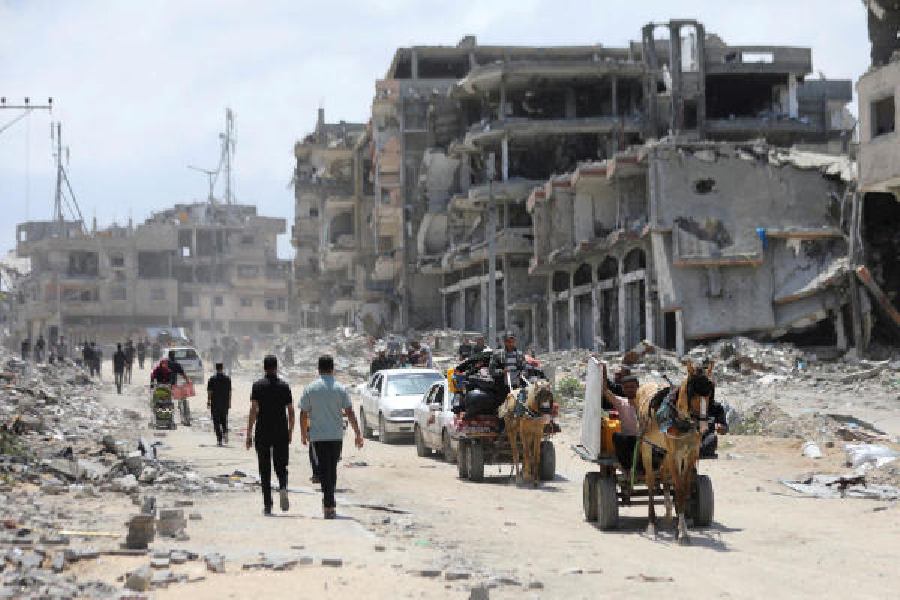Current and former senior military officers have begun to argue more openly that because the government has failed to roll out a plan for what follows the fighting in Gaza, Israeli troops are being forced — in the eighth month of the war — to battle again for areas in the northern part of the territory where Hamas fighters have returned. With no obvious end in sight to that cycle, and ceasefire talks apparently stalled, the risks for soldiers are growing.
Two Israeli officials, who spoke on the condition of anonymity to avoid professional repercussions, said some generals and members of the war cabinet were frustrated with Prime Minister Benjamin Netanyahu for failing to develop and announce a process for building an alternative to Hamas to govern Gaza.
They said Netanyahu’s unwillingness to have a serious conversation about the “day after” has made it easier for Hamas to reconstitute itself in places such as Jabaliya in northern Gaza, which Israel first attacked in October — and where it launched a new air and ground assault this week.
Eran Lerman, Israel’s deputy national security adviser from 2006 to 2015, said the backlash Israel is facing from much of the world over the war, and the rising death toll among Palestinians in Gaza, comes in part from “the lack of coherent vision for the day after”.
Prime Minister Benjamin Netanyahu has resisted calls to bring the fighting to an end, arguing that there can be no civilian government in Gaza until Hamas is destroyed.
On Monday, in a podcast interview, he said the territory needed “sustained demilitarization by Israel” first, because “no one’s going to come in until they know that you either destroyed Hamas, or you’re about to destroy Hamas”.
But with a growing number of analysts and officials questioning whether Israel can accomplish such a broad goal, the more vocal critique from parts of the military reflects a gradually widening rift with the Netanyahu government.
While Israeli strategists have said they expected troops to go back to some areas of Gaza in later phases of the war, the two Israeli officials said that starting to set up a new governing authority in Gaza would make things more difficult for Hamas — and could lighten the load for the Israeli military.
The military’s leaders “are frustrated that they have been given a military assignment that ends up repeating like Groundhog Day because the larger strategic and political questions haven’t been answered by the government,” said Michael Koplow,
an analyst at Israel Policy Forum.
For Netanyahu, the political considerations involve trying to hold together a government with Right-wing parties that have demanded an all-out assault on Gaza over American objections and are unwilling to support what Arab countries have demanded as a prerequisite for their help in Gaza: a path to a Palestinian state.
If Netanyahu veers too far from their demands, they have threatened to topple the government, which could leave Netanyahu to face a series of corruption allegations without the powers he has as Prime Minister.











